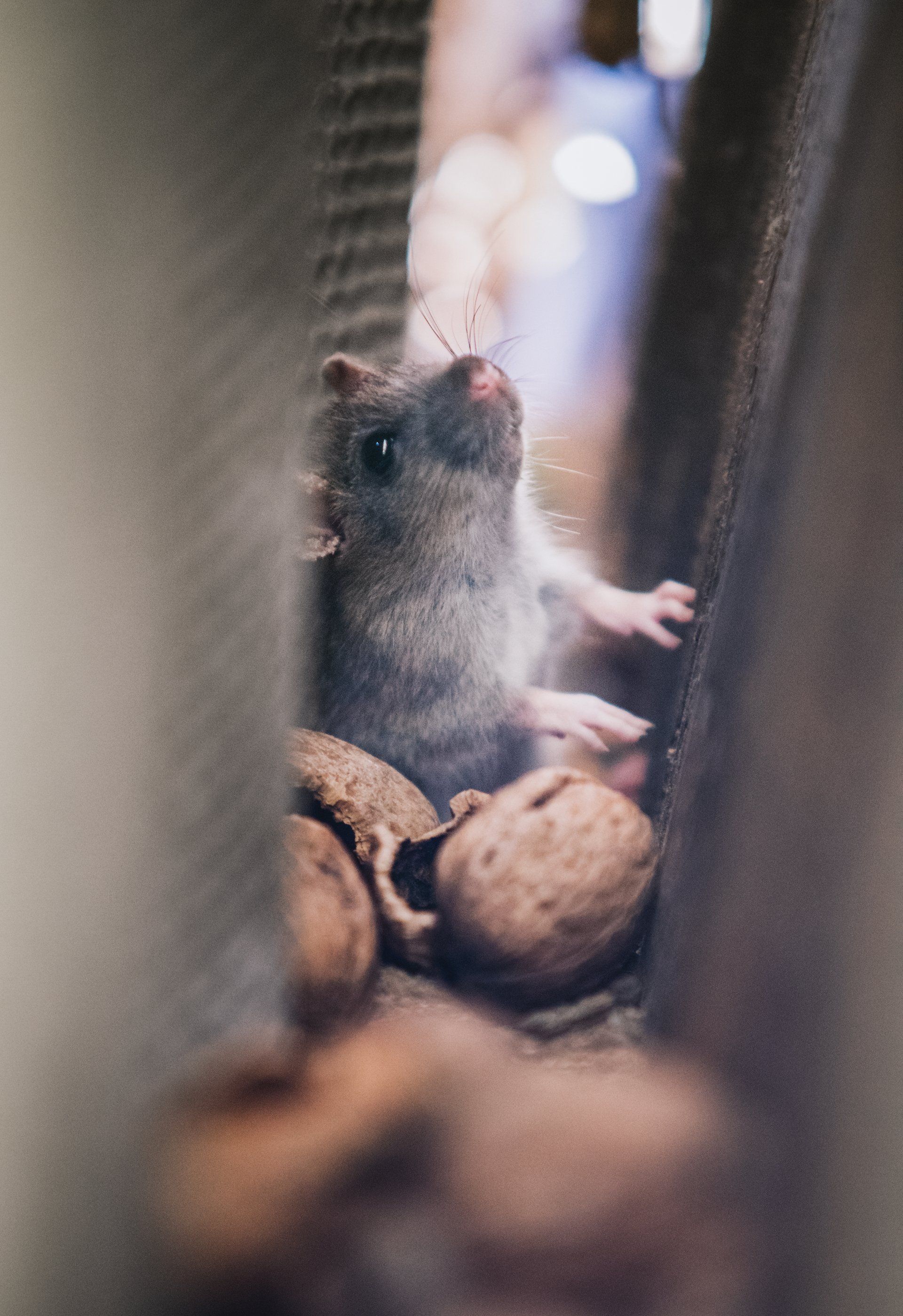How to Keep Rodents OUT of your RV
Prevention Is Key to a Happy Ending

Outfitted with a hazmat suit, booties and a respirator, Nate gets ready for today's job. No, he is not with the CDC on site at the latest outbreak, he is an RV technician about to crawl into the underbelly of a 5th wheel to fix the extensive damage done to its plumbing and ductwork by some uninvited guests.
Mice can be cute but mostly they are just a menace. Rodents chew holes, destroy walls, electrical lines, plumbing and ductwork, leave droppings that can carry diseases and can ruin your RV in just a few months of storage. Clean up and repair can be costly. The best way to fix a rodent problem is to stop it before it starts.
Rodents are looking for the basics, food and a place to live - preferably all in the same location. If you ensure there is not any food available for them, they may just keep looking elsewhere.
- Take all of the food out of your RV in between trips. This includes items such as bags of pasta or boxes of crackers or other nonperishables as they will chew right through the containers. Don’t forget to remove Fido’s food and treats too!
- Thoroughly clean the RV after each trip. Wipe down the cabinets where food is stored and crumbs that fell in the oven or under the burners on your stove. Vacuum shelves, flooring and under cabinets and seat cushions (or anywhere children may have been snacking).
Once you have taken away all of their food sources, it is time to make the RV less enticing as a place to live. There are plenty of natural smells that deter rodents. Studies have shown that rodents dislike peppermint oil, mothballs, dryer sheets and yes….Irish Spring bar soap! These items can be placed in cabinets, near the seams of your slide-out and in your cargo bays.
A great product that our customers swear by is
Fresh Cab Botanical Rodent Repellent.
It is non-toxic, made in the USA and there is NO MESS!!! They come in little pouches that you place near entry points to repel the rodents. Replace them every 3 month for maximum effectiveness.
Poisons are not recommended. Whether it is because it seems cruel or possibly dangerous in your mind, especially if you have children or pets, our technicians do not recommend it for one very basic reason. The rodent may be hiding in your RV when the poison kicks in. No one likes to play the “find that smell” game.
Traps are also an option for “catching” the critters before they get inside your RV. There are box traps, glue traps and old-fashioned spring traps, some are humane - some are not. Just remember that these are not exactly a “hands-off” method as the traps and whatever it is that gets trapped must be properly disposed of which can be a negative to many people. Remember not to use bait in your traps. That only invites the unwanted guest with smells.
So you have decided on your deterrents… Now what?
Inspect your RV. There are so many places that are vulnerable in and on an RV as an entry point for rodents. Take a good look at all the places that could let unwanted guests into your travel trailer or motorhome, such as the seams along your slide-out, the HVAC system, door and window gaskets, and even holes along the underside of your RV by the sewer, water, or electrical lines. Get a flashlight and get to inspecting!
Remember, they only need the size of a dime opening to get in. Holes can be filled with expanding spray foam or caulking. You can also cover it with foil tape or stuff the opening with steel wool.
With these tips and tricks, hopefully the only house guests you have are those you have invited!
